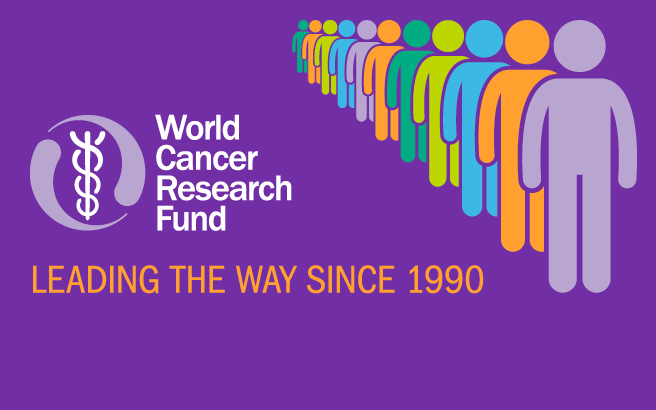 Our Public Health Advisor, Melissa Mogor, takes a look at how our research and health messaging has evolved in 30 years.
Our Public Health Advisor, Melissa Mogor, takes a look at how our research and health messaging has evolved in 30 years.
It’s our birthday!
As it has officially been 30 years since World Cancer Research Fund (WCRF) was founded, in true birthday fashion let’s take a nostalgic walk down memory lane and look at how some of our health messaging has truly blossomed over the years.

The progression of our Expert Reports
In 1997, we published our first ever Expert Report, this ground-breaking publication confirmed that lifestyle choices have a huge impact on cancer risk. Since then we have continued to share the most up-to-date, global, scientific evidence on cancer prevention; resulting in our Second Expert Report in 2007 and our most recent Third Expert Report in 2018. Our world-leading research underpins the services we deliver and the resources we produce, as well as informing our ten Cancer Prevention Recommendations.

We have definitely kept up with the times, both visually and scientifically, by updating our Recommendations to reflect any changes in the evidence; as well as providing fresh, clear visuals to represent the science, and patient-friendly health information that reflect changes in national lifestyles and behaviours.
Have a look at the infographics below to see the changes in our Cancer Prevention Recommendations from 2007 to 2018.

Eat less salt
Among other changes, limiting daily salt intake to less than 6g has since been removed from our list of recommendations, in light of the findings in our Third Expert Report. Although this advice is still important for a healthy diet, the evidence is no longer conclusive enough to recommend avoiding salt for cancer prevention – therefore health messaging has also changed. This does not mean that salt is back on the menu, as diets high in fat, sugar and salt can result in excess weight gain and that does increase the risk of cancer. Essentially, it is important to still maintain a healthy varied diet with moderation in mind.

Survival
As science evolves it is important that we adapt. A key area we are expanding is our work into cancer survival. While our first two Expert Reports focused solely on cancer prevention, our most recent Expert Report brought together all the current evidence on what prevents cancer and also includes a chapter on cancer survival. For the first time at WCRF we are investigating how diet, body weight, and physical activity can influence the quality of life for both people living with cancer and cancer survivors. As a result, we now deliver cancer survivor support services and our series of publications includes patient-friendly resources for anyone living with and after cancer, such as our Eat well during cancer booklet that was commended as a resource for patients in the 2018 BMA patient information awards, and our Ryan Riley recipe booklet.
WCRF has come a long way over the last 30 years, our work has positively contributed to the lives of so many; from research and health advice, to influencing policy change. And to be honest we’re just getting warmed up!
Here’s to another 30 years!

